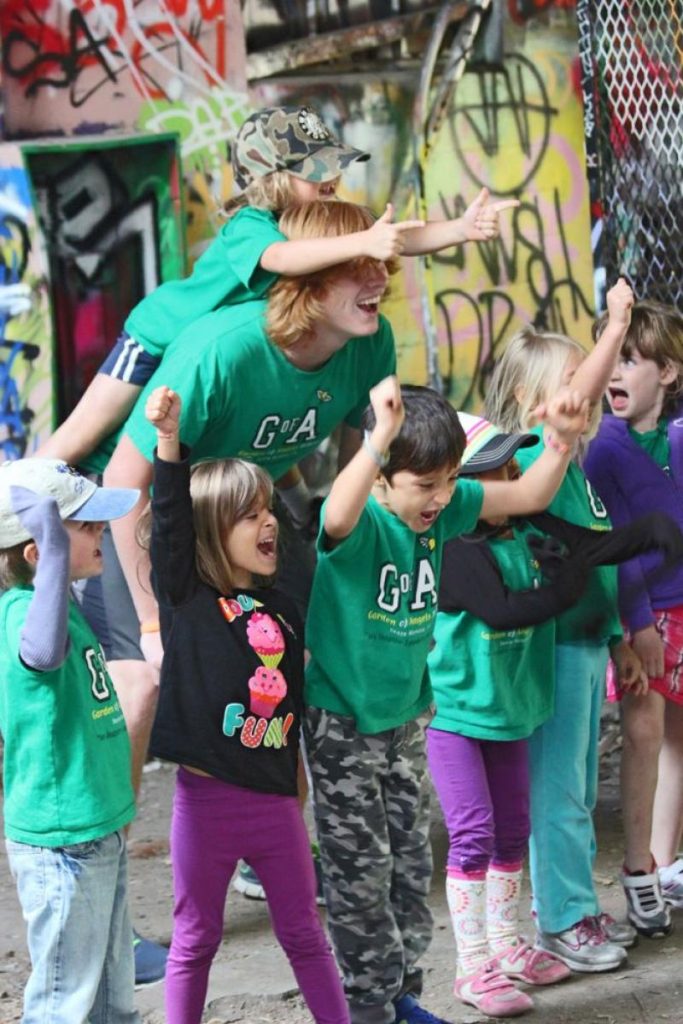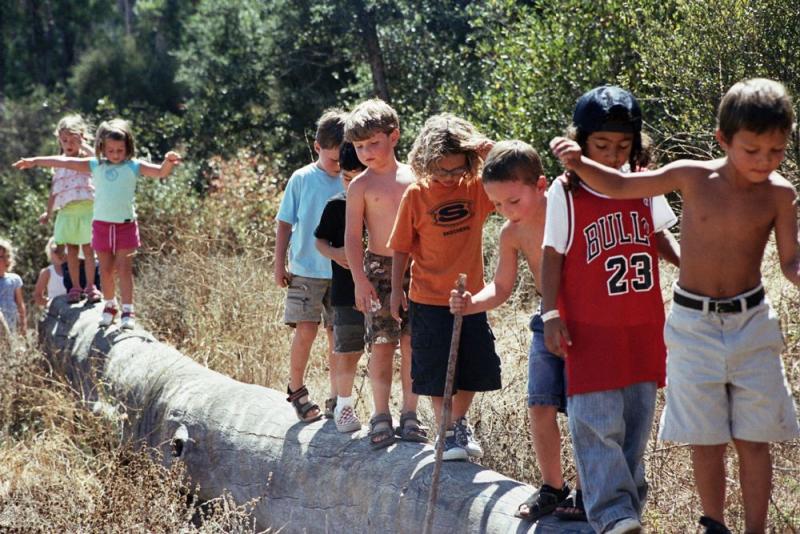Our Educational Stance
The proper time to influence the character of a child is about 100 years before he is born.
— The Observer, 1929

The way the system has always been organized exemplifies how it should change. Education is defined by time, roles, procedures, programs, precedents and rituals which tragically suppress innovation, research, outcomes and results. Todays standards-based reforms are the direct outgrowth of the template established in 1893. To this day, subjects that are structured by this discipline, grade-level descriptions and a nine-month calendar, narrowly define both learning and education. Recognizing the limitations of a graded system, the Garden provides a positive alternative by nurturing the developmental, social, emotional intellectual and physical needs of each of our students. We reject the watered down standards and the fear-driven approach. Claiming that without standards our young people will struggle in life, is simply not true. There is no research or data collected to support this, yet it deepens every parents anxiety about their children’s future livelihood and place in society. Sheltered from stress, anxiety and judgement, our students are given the freedom to evolve and grow. We are privileged to witness their peaceful progress as they transform into big dreamers and visionaries

This system of subjects
This system of subjects, courses, grade-levels, grades, bell-curves, credits, class ranks and the iceberg paradigm of school, has been institutionalized, reinforced by the media and sold to the public. Over the century, it has attained a sacred status within our society. We must ask ourselves, “What exactly does this mean and what does it look like for future, passionate learners?†Well, it looks bleak. Students will continue to be fine and they will achieve the ability to regurgitate information, score and think like everybody else . . . but is that all we hope for them? Many modern systems of education continue to feed and train students to gain information at the expense of feelings, wisdom, discernment and long-term comprehension. As a generalization, students believe that in order to count, they must make the grade and fall into line. We ask you, will these criteria help to generate independent, free thinking, creative, cognitively capable and idea-loving adults? Will these criteria allow our wonderfully spirited children the ability to communicate powerfully with others?
Finding a students potential
No wonder our world is falling so desperately short of its potential, with undiscovered CEOs, entrepreneurs, genius inventors and great humanitarians hidden in the shadows. The current system of education finds it difficult to take the time to honor and value the very things that we are required to possess in order to be a great mind, hero or even a fully functioning adult. It is odd that society expects students to be extraordinary human beings, who can generate original ideas, understand complex cognitive concepts, take risks, be creative and communicate effectively without the tools or platform to support or practice reasonable mastery of this expectation. We are seeing government successfully forced education to focus on the narrow mindset of “standards”, a set of intellectual content that has little to do with a deep understanding. This “useful data” and increasing standardization of learning only prepare students to be like everyone else! The educational system, as we know it, partially due to its large size, appears to be unsuccessful at generating these qualities in todays students. Our Garden students are respectfully coached and given strategies to honor and unleash their inner potential as a valuable commodity, only they posses. We believe Garden students will be those who stand up, stand out and shine! This advantage is the very reason we feel it beneficial for families to experience our program from beginning to end.

Total Leadership
We have access to all this research and data that clearly shows that we have a major breakdown in a student learning comprehensively and joyfully, yet much of society continues to embrace its failure. We can no longer afford to educate students by forcing information at an accelerated pace with no real connection to content except a correct answer. It is time to shift our mindset so that authentic learning can occur. Our society is so mesmerized by total leadership. The way we traditionally structure schools denies students the opportunity to work through the process and practice becoming what we expect and actually need them to be. This status quo leaves students fundamentally bankrupt, lacking in skill application and the individual confidence to press back against the authority that calls us to be the least common denominator, while campaigning to be a stand for “No Child Left Behind”. It is a crime really . . . one that punishes possibility in the heart of our children who need to be known and lifted up who deserve our very best. Could this be no one’s responsibility? Could it be that it happens unconsciously, or with the best of intentions? Perhaps the solution is so simple as to return to the days of smaller community schools. Garden of Angels is such a school.
